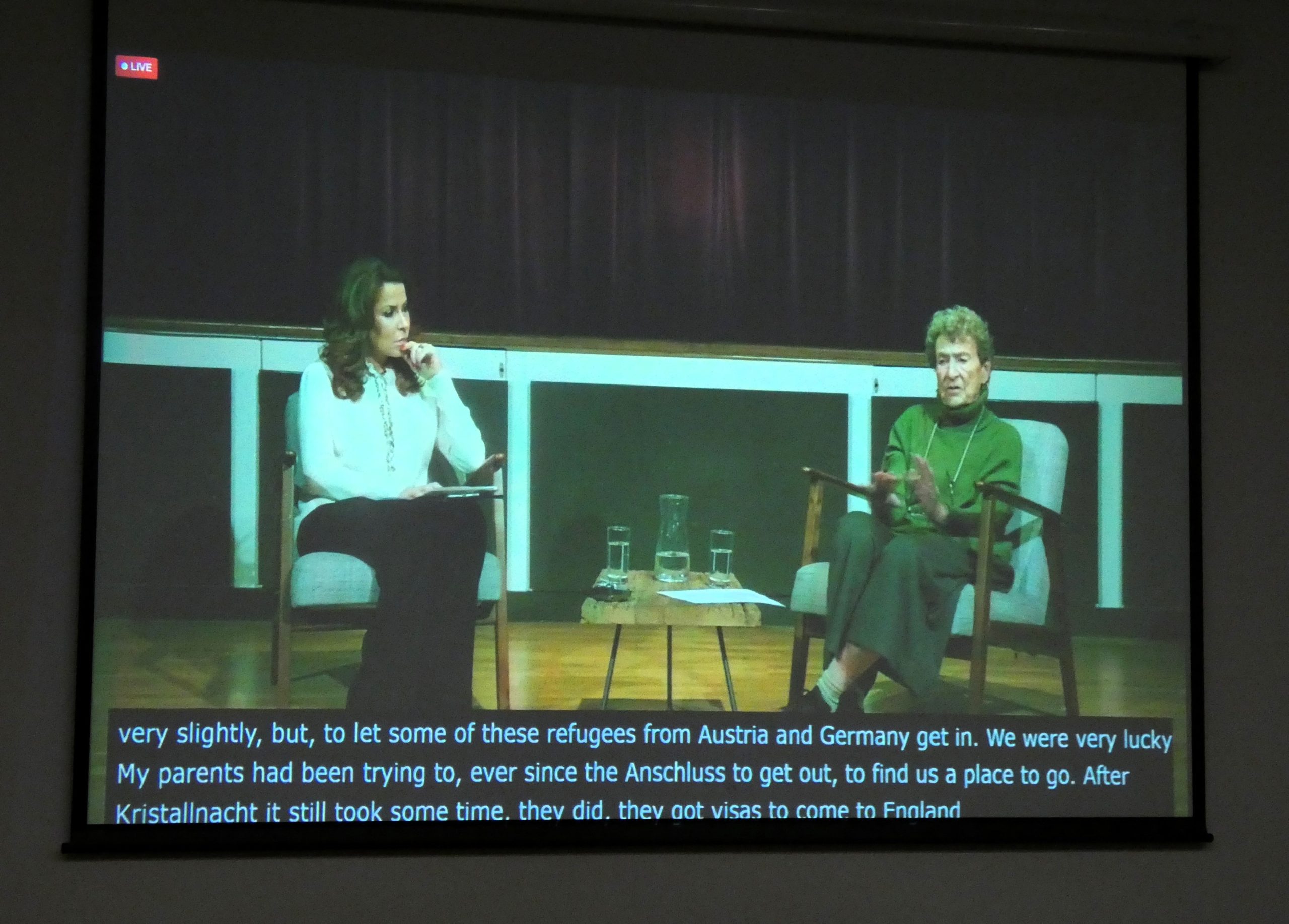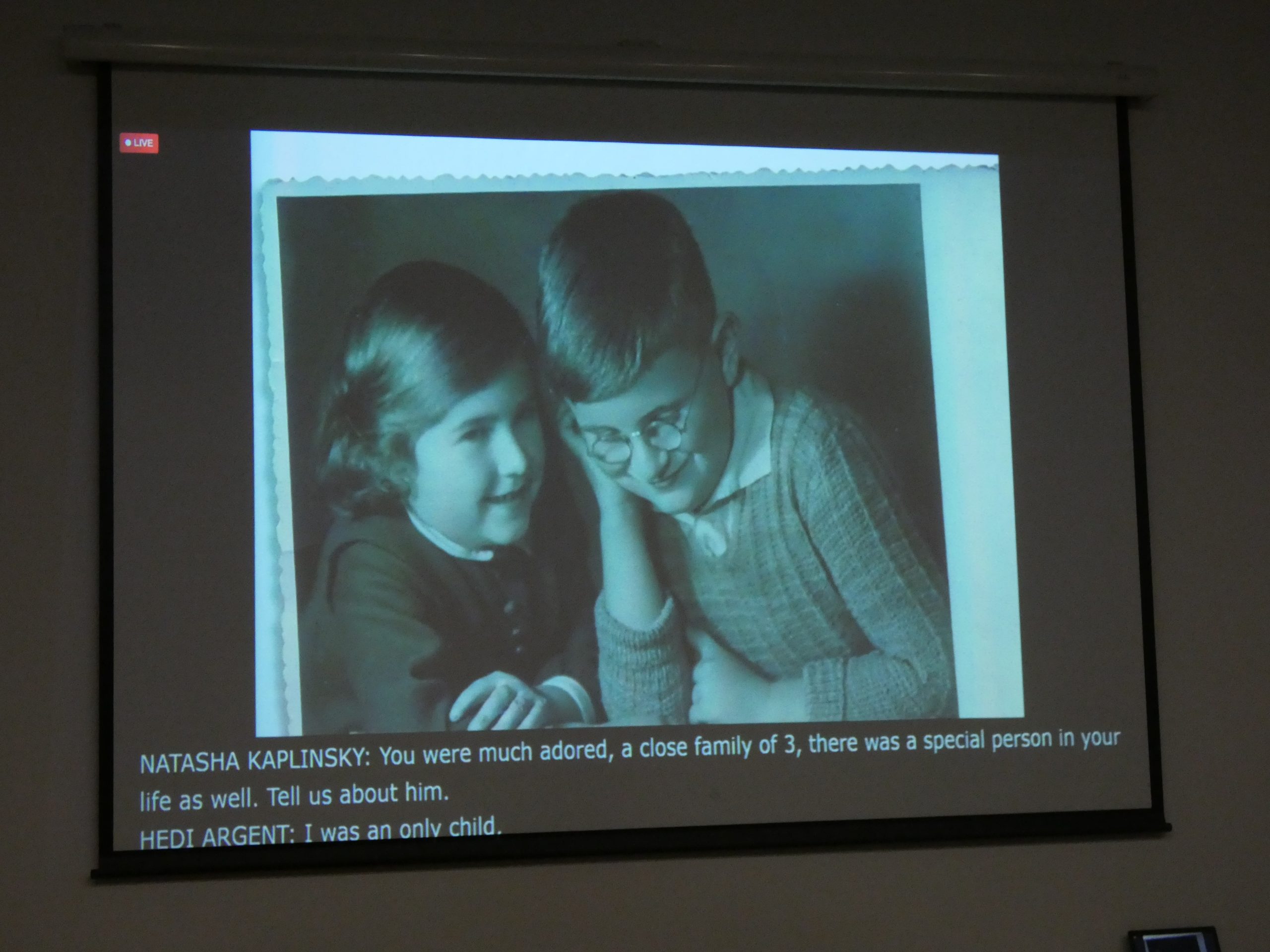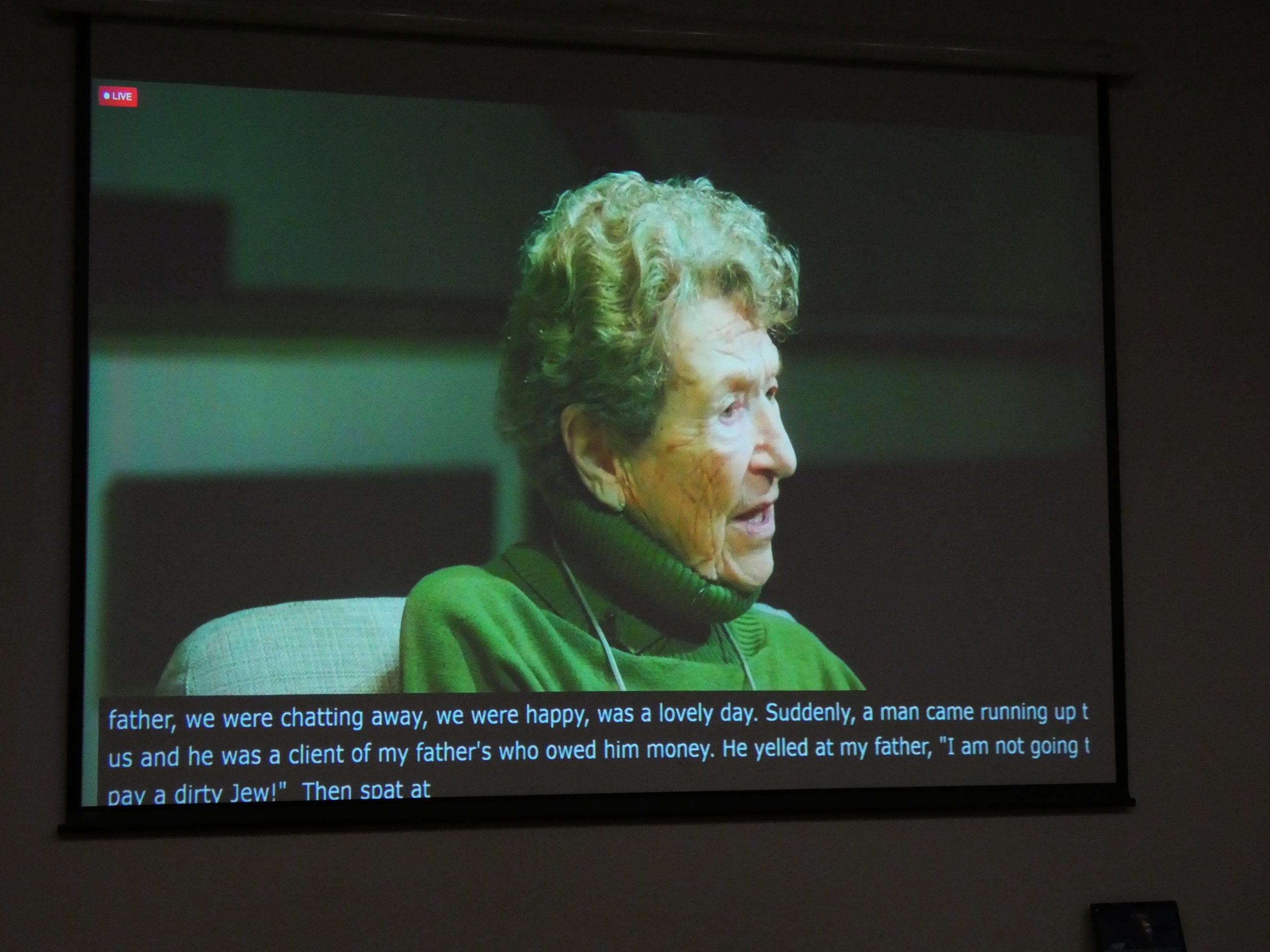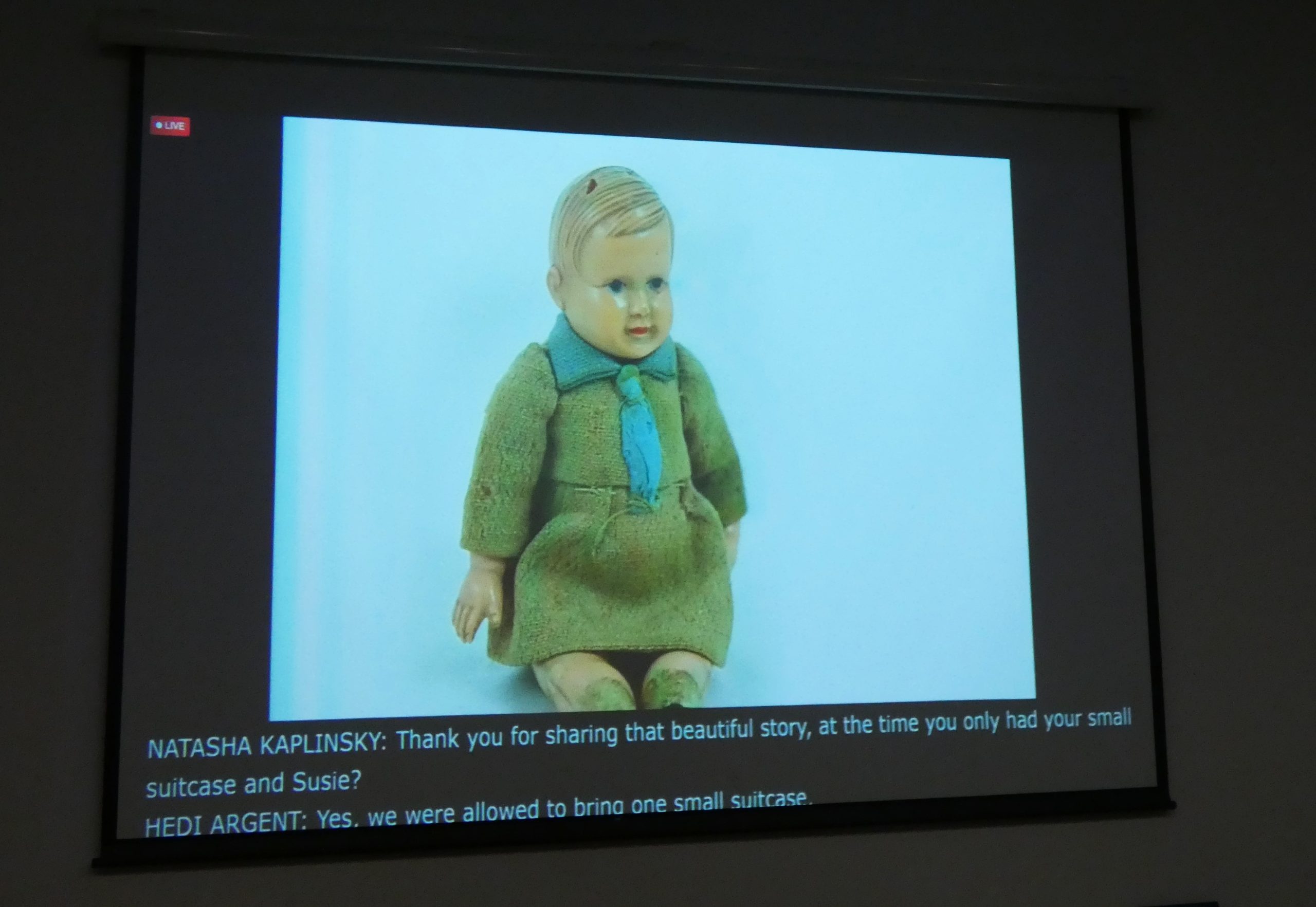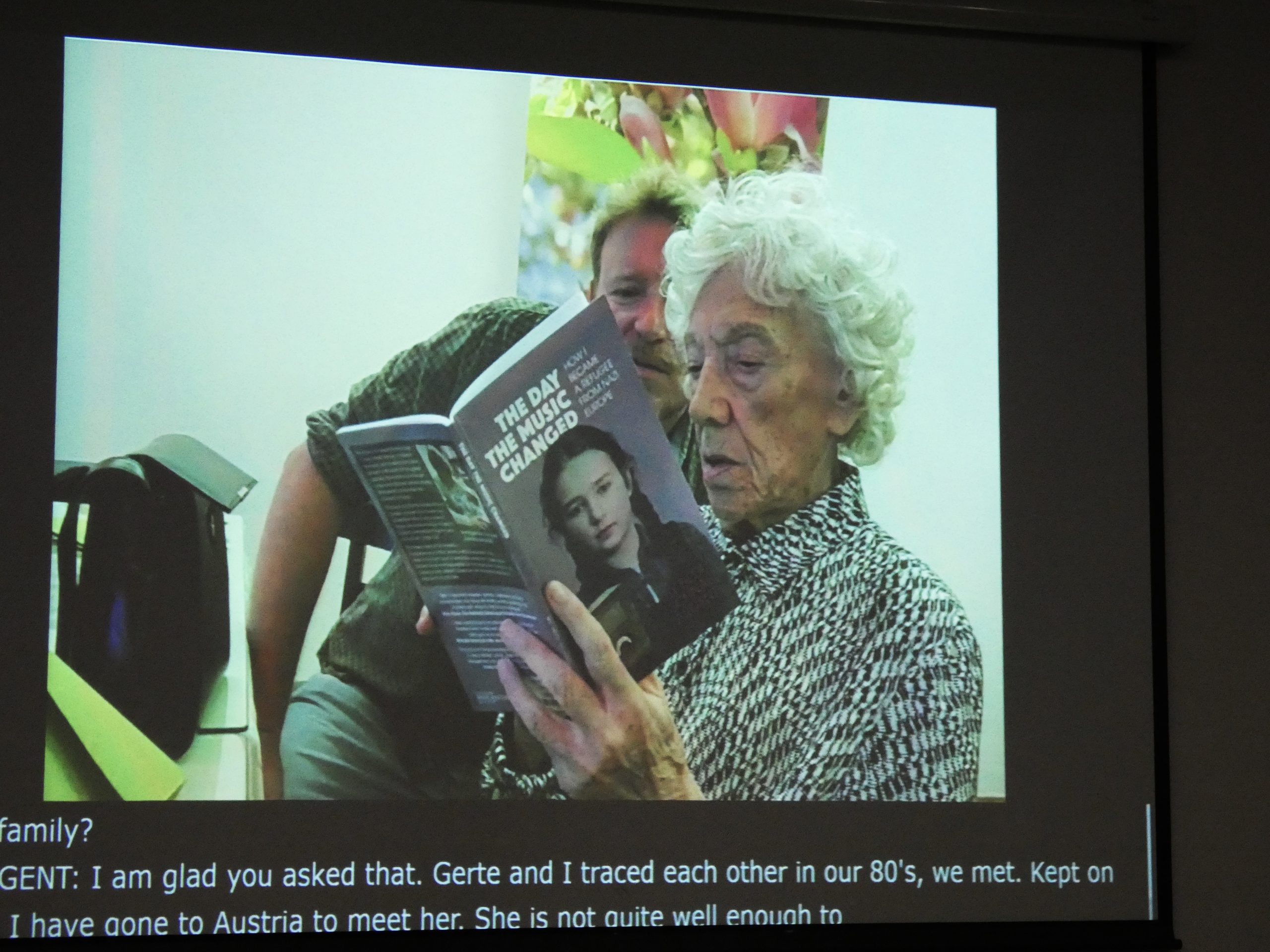Sixth Form meet Holocaust survivor Hedi Argent MBE
On Tuesday 23 January, Year 12 and 13 students participated in a special early webcast to mark Holocaust Memorial Day on 27 January, the anniversary of the liberation of the Nazi concentration and death camp, Auschwitz-Birkenau.

Each year, schools, communities and faith groups across the UK join in national and local events to commemorate the victims of the Nazis and their collaborators and to consider the contemporary relevance of the Holocaust.
The aim of the webcast was to enable students to explore what life was like for Jewish children in the 1930’s, to explore what the holocaust was and understand why survivor testimony is important. Students were asked to consider questions that they could ask Hedi Argent MBE during her live testimony.
TV presenter Natasha Kaplinsky chaired the webcast, introducing a nationwide online audience together with a studio audience to Hedi Argent MBE.
Hedi was born in Vienna in 1929. Both her parents came from Moravia but chose to settle in Austria after the First World War. Her father had served in the war, was taken prisoner by the Russians and was in Russia during the Revolution. Hedi’s family were deeply rooted in the Jewish tradition but not religious. Her father was a defence lawyer, her mother looked after the home and they led modest lives. She was an only child but close to extended family, especially her cousin Bubi. She was brought up to be proud of her Jewish heritage but struggled to deal with antisemitism in school.
The day following the Anschluss (the German annexation of Austria) in March 1938, Hedi was turned out of her school, a week later her father’s law practice was taken over by a Nazi lawyer and the family home was requisitioned. Hedi’s father was then made to scrub streets and arrested for making ant-Nazi comments. Hedi recalled watching synagogues burn and the sound of shattering glass during Kristallnacht and the families desperate attempts to leave the country when her father was released from prison and given 6 weeks to leave the country. After many struggles they eventually received visas for England and left Austria just 6 weeks before the start of the second World War and a week after Hedi’s tenth birthday.
They arrived with a small suitcase each and £2.17s.6d between them. Tragically, 27 members of her extended family perished in the Holocaust. Hedi had devastatingly lost her close cousin Bubi after war broke out and borders were closed preventing them from leaving. Her response to the question “Why are you sharing your story?” was poignantly “Bubi can’t tell his story so I share mine”
Life was not easy for Jewish refugees although when Hedi’s family moved to the Midlands she embraced school. She became a British citizen in 1946, married and had children and made a successful career for herself as a social worker.
When asked had she been able to forgive, she replied:
” Not for a long time however 7 or 8 years ago, four young Austrian archaeologists contacted me to ask if I would take part in a film they were making on what happened in Austria before the war. I agreed, made the film and absolutely loved them as through that process and themselves, they reconciled me with what was my homeland rather than resenting it.”
Hedi’s lasting request is that the audience should share her story – pass on what has been discussed and continue to talk to help people understand that we are all individually unique yet part of the human race and there is no place for racism anywhere.
